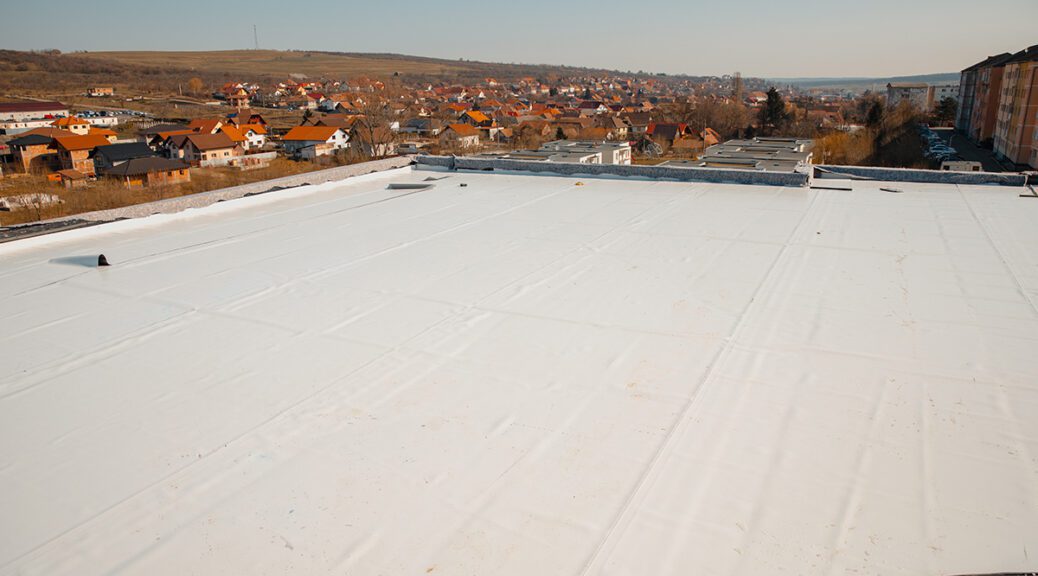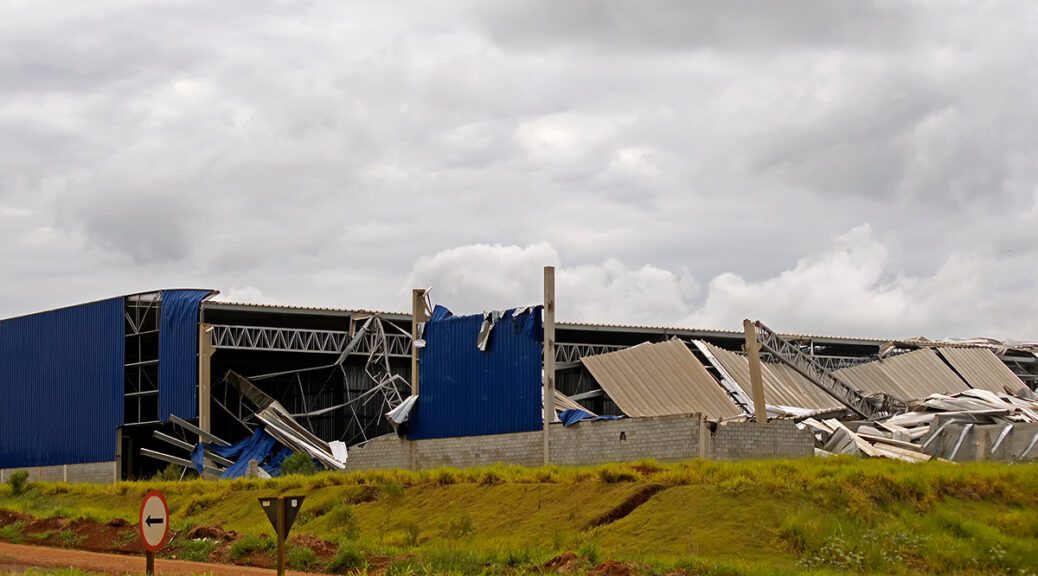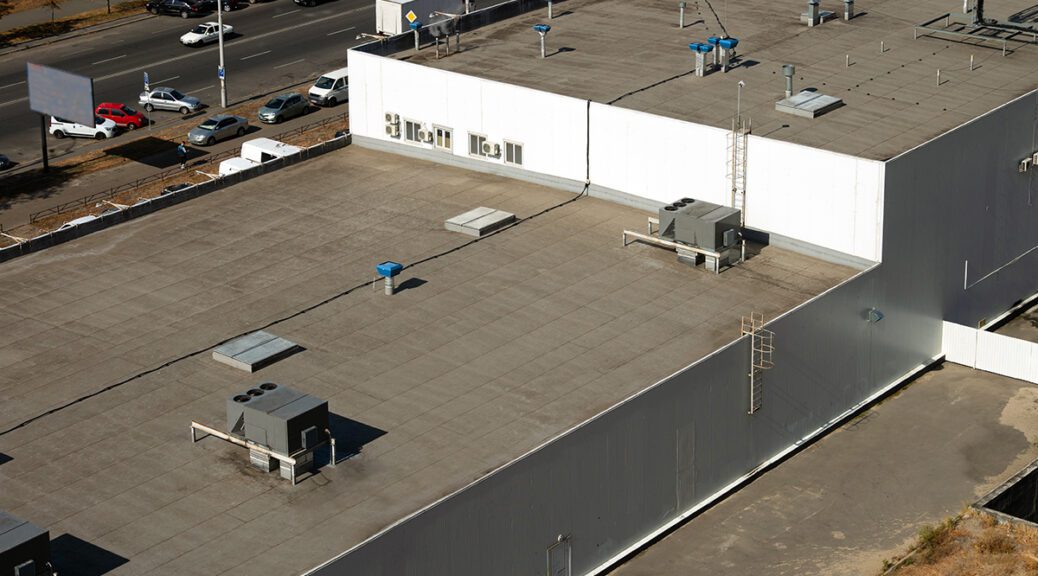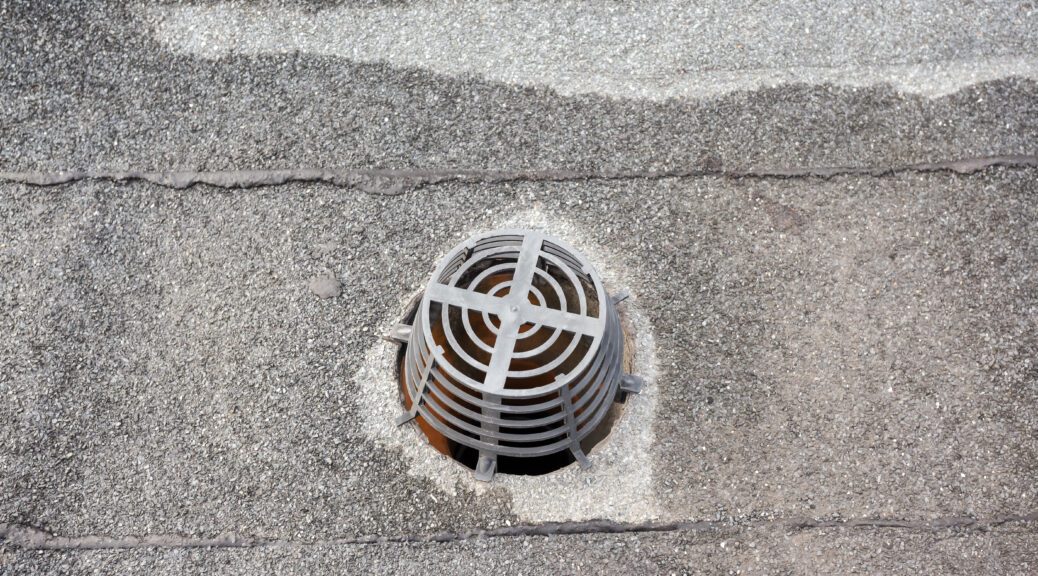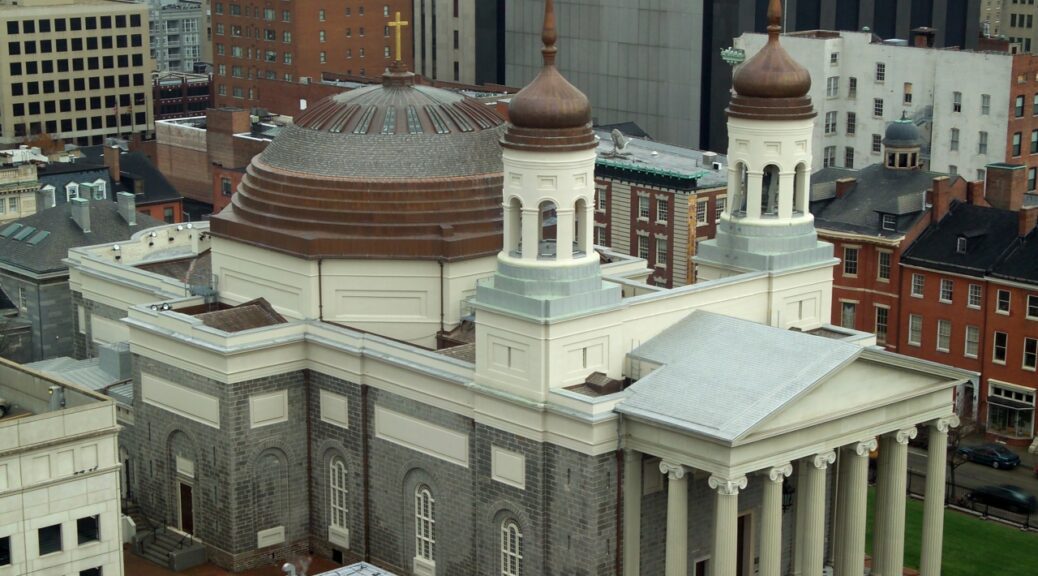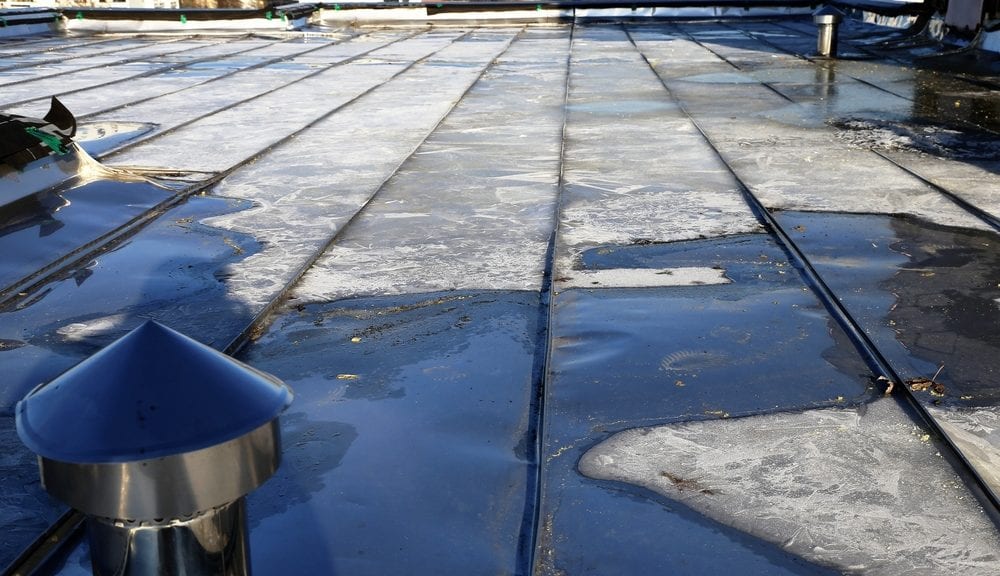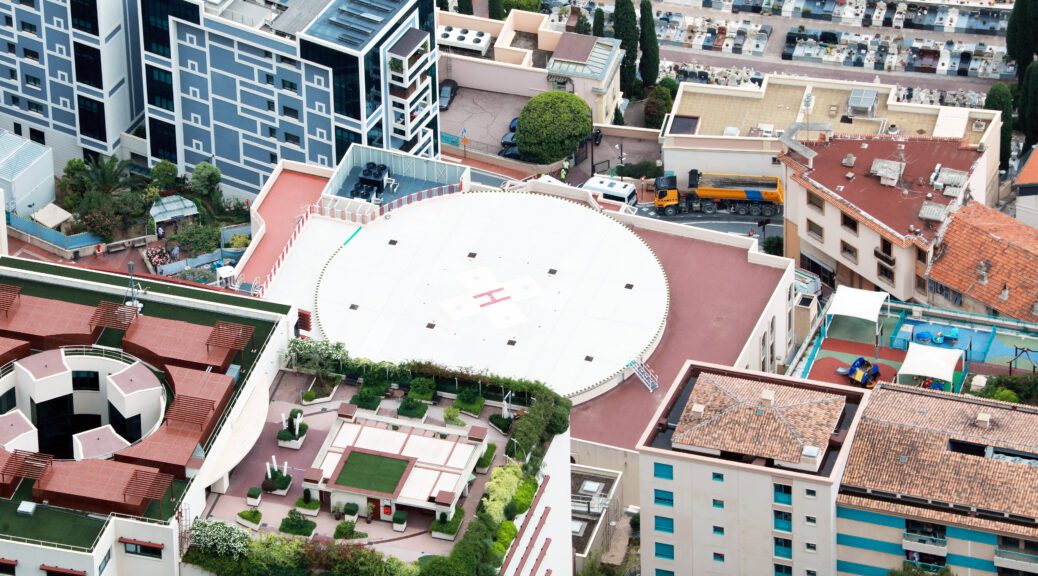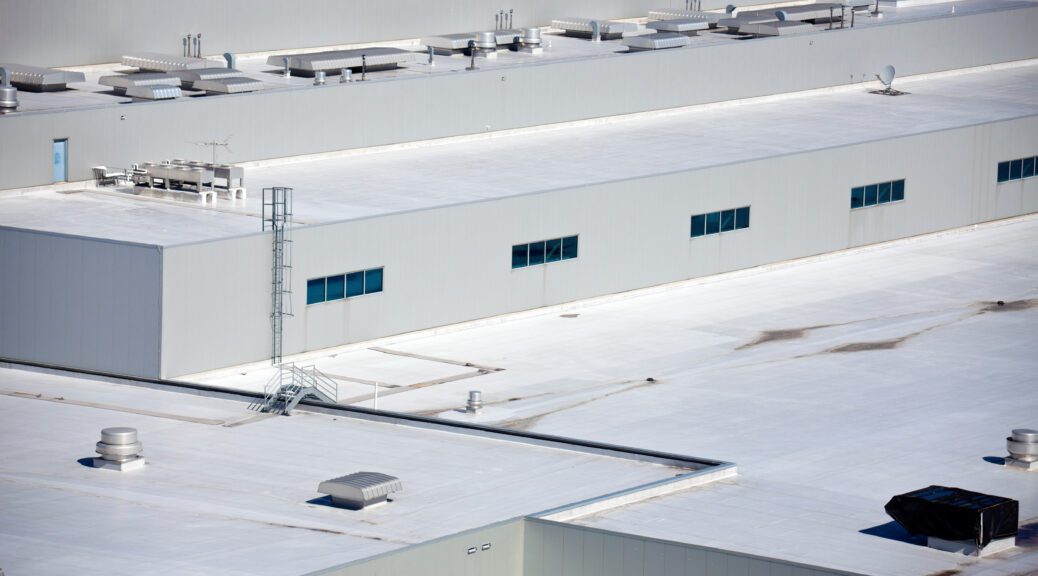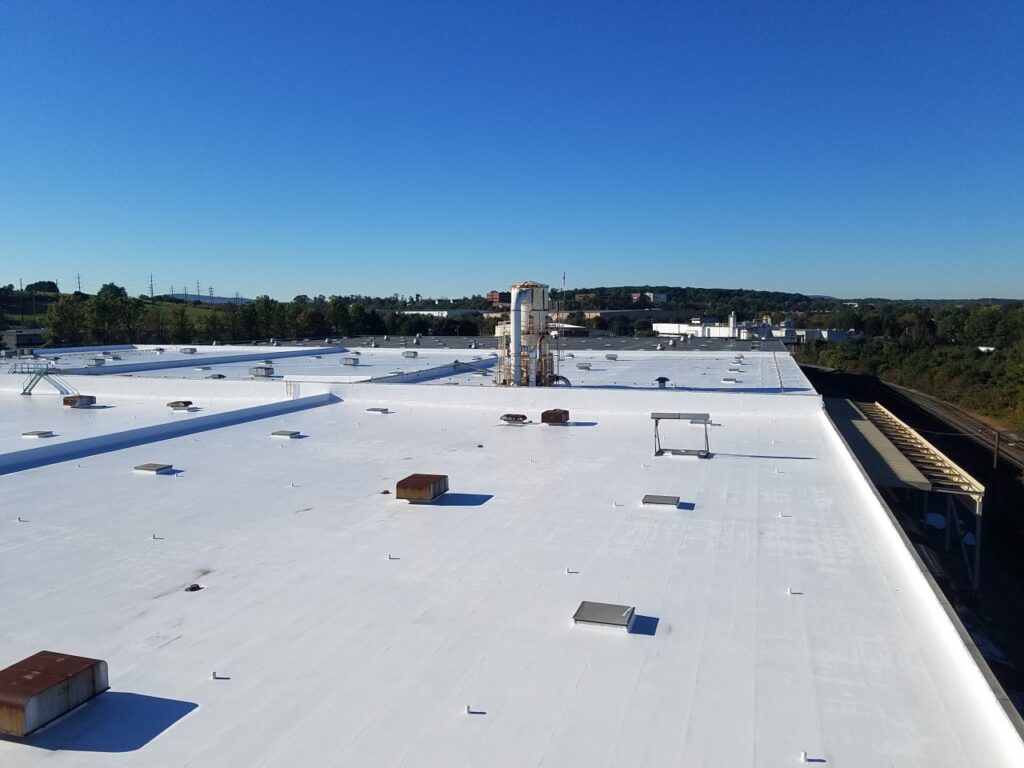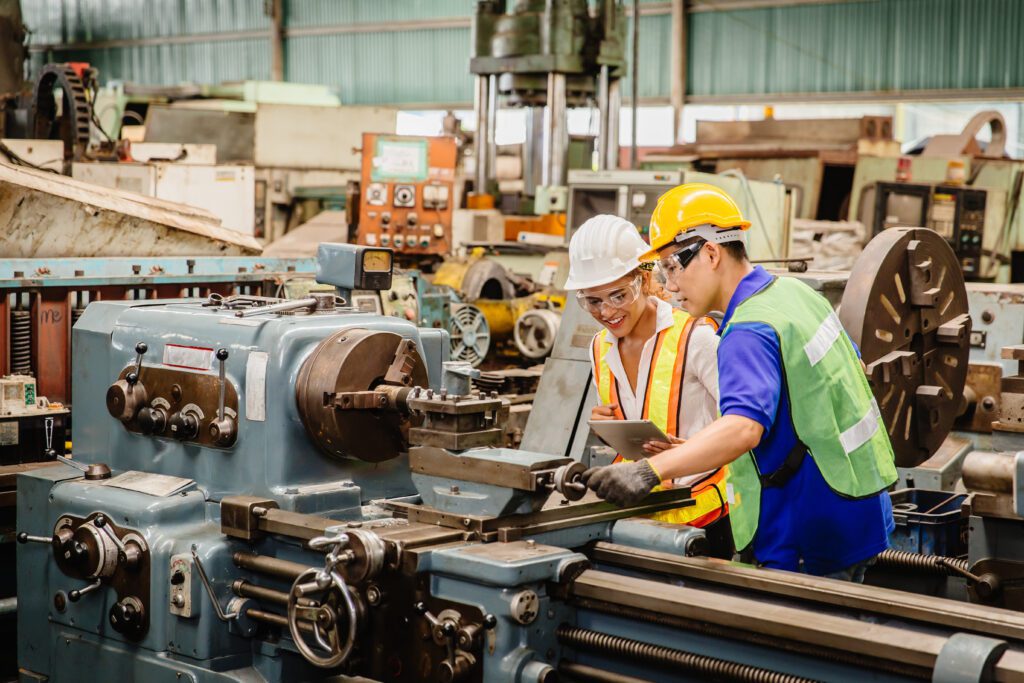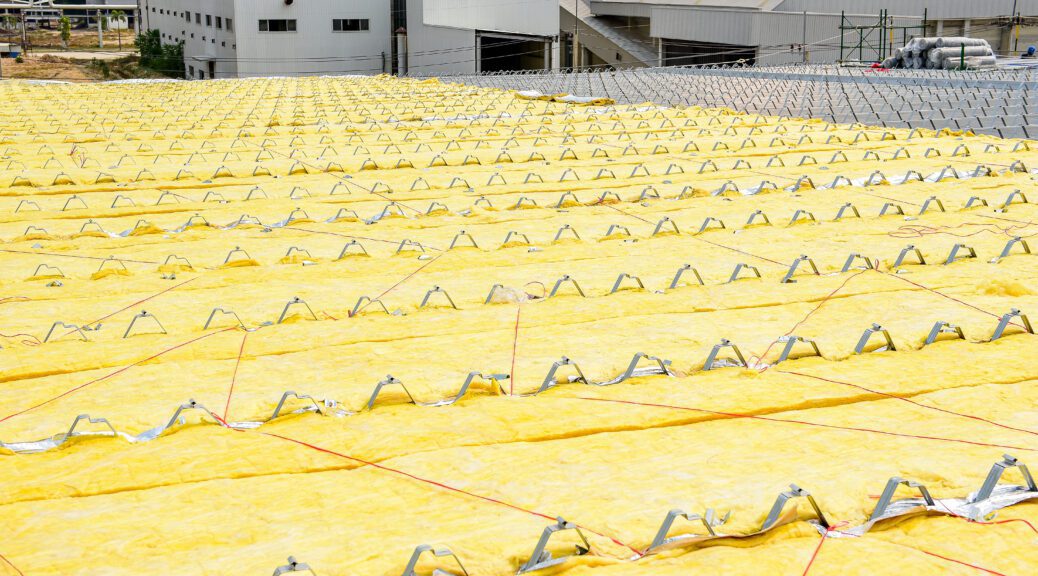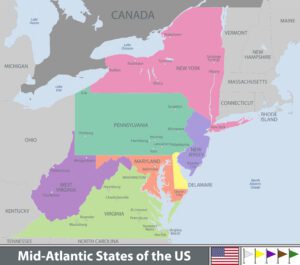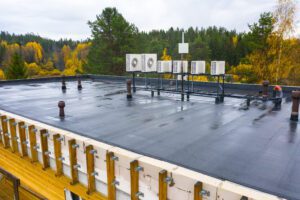If your existing roof is aging, energy costs are skyrocketing, and you’re concerned about your building’s carbon footprint and environmental impact, you’re not alone. Business owners and facility managers of commercial buildings are concerned with not only the longevity and durability of their roofs, but also with the costs of maintaining them and keeping them as energy-efficient as possible. That’s where sustainable commercial roofing comes in.
You can transform your commercial space into an environmentally responsible and cost-effective haven by embracing eco-friendly roofing materials, implementing energy-efficient practices, and reducing greenhouse gas emissions. These sustainable roofing solutions can lower cooling costs, improve air quality, and contribute to potential energy savings, among other benefits.
Take the first step towards a greener and more cost-efficient future. Schedule a roofing estimate with us today, and let’s explore which of these benefits of sustainable roofing solutions your business can realize. Together, we can positively impact the environment while maximizing the benefits of your commercial roof.
1. Reduce Energy Consumption
Are you tired of escalating energy costs eating into your budget? Sustainable commercial roofing offers a solution that can significantly reduce energy consumption and save you money in the long run. By incorporating eco-friendly roofing materials and energy-efficient designs, you can create a building that minimizes heat transfer and maximizes insulation.
We understand the importance of reducing energy consumption. That’s why our roofing contractors specialize in installing cool roofs, which utilize reflective coatings or light-colored materials to reflect a significant portion of the sun’s energy. This simple but effective strategy can result in lower cooling costs, especially during hot summer months. This reflective roof means reduced energy use and substantial savings on utility bills for facility managers, business owners, contractors, and architects.
2. Lower Maintenance Costs
Facility managers and business owners know regular roof maintenance can be a significant expense. However, sustainable commercial roofing offers a game-changing advantage—lower maintenance costs. Investing in high-quality, properly installed roof systems can enhance durability and longevity, reducing the need for frequent repairs and replacements.
Using eco-friendly and incredibly durable materials, such as metal roofs, ensures that your roof withstands the test of time. Whether metal roofs with exceptional resistance to harsh weather conditions or green roofs that provide natural insulation and manage stormwater, sustainable roofing options offer superior performance and require less maintenance. By partnering with Heidler Roofing, you can enjoy peace of mind, knowing that your roof is built to last and withstand the elements.
3. Minimize the Environmental Impact of Building
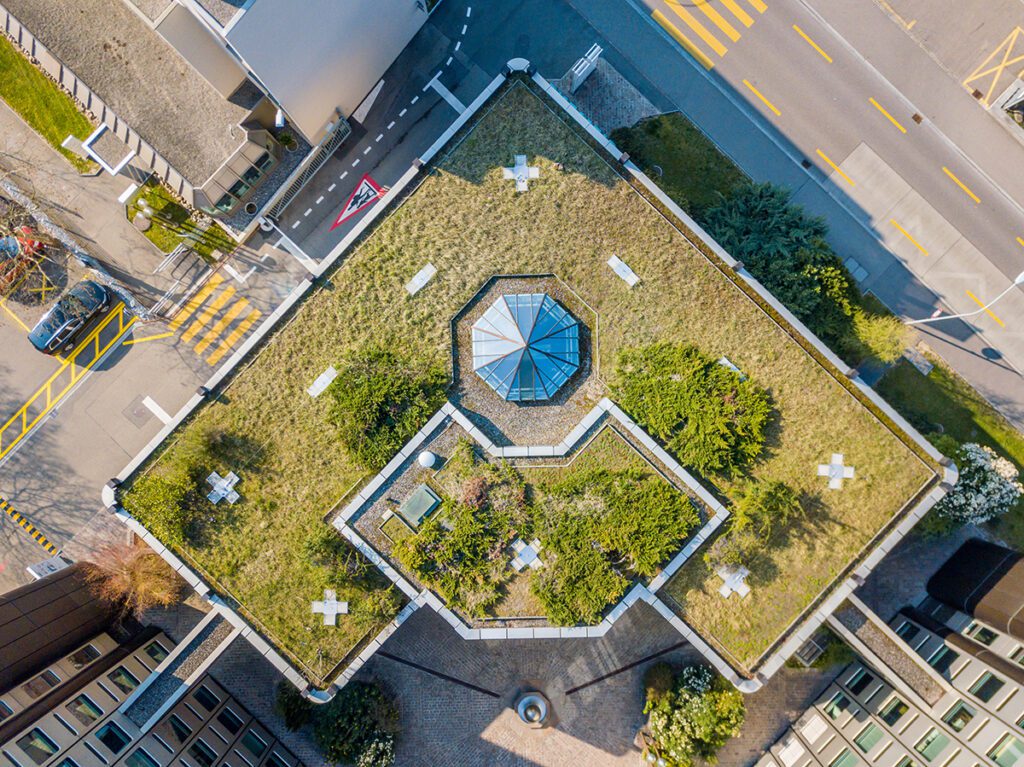
Another benefit of sustainable commercial roofing is minimizing the environmental impact of your building. As a facility manager, business owner, contractor, or architect engaged in commercial roofing projects, you can positively impact the environment. Sustainable commercial roofing offers a range of eco-friendly options that help minimize the environmental footprint of your building.
Environmentally friendly roofing materials often feature recycled content, reducing the demand for new resources and diverting waste from landfills. By opting for sustainable roofing solutions, you can actively contribute to reducing the consumption of fossil fuels and lowering greenhouse gas emissions.
Additionally, cool and green roofs are gaining popularity due to their ability to mitigate the urban heat island effect and improve air quality. Cool roofs reflect heat, reducing the amount of solar radiation absorbed by the building and, in turn, minimizing the heat island effect in urban areas. Green roofs, on the other hand, provide natural insulation, filter pollutants from the air, and create habitats for birds and insects.
4. Improved Insulation
A fourth benefit of eco-friendly roofing options is improved insulation. Efficient insulation is crucial for maintaining comfortable indoor temperatures and reducing heating and cooling costs. Sustainable commercial roofing offers innovative solutions to improve building insulation, providing thermal resistance and reducing energy waste.
Sustainable roofing materials and designs enhance building insulation. From metal roofs with their excellent thermal properties to cool roofs that reflect heat, these options help regulate indoor temperatures, keeping the space comfortable while minimizing the need for excessive heating or cooling.
Investing in sustainable commercial roofing can improve energy efficiency, reduce reliance on artificial heating and cooling, and create a more comfortable environment for occupants.
5. Save Money
Who doesn’t love saving money? Sustainable commercial roofing provides a practical and cost-effective solution that can help you reduce expenses in the long run. With energy-efficient designs and materials, you can significantly lower your utility bills and enjoy substantial savings.
We understand the financial benefits of sustainable roofing. By implementing cool roofs, which reflect solar heat and reduce the need for excessive cooling, you can experience significant energy savings. Additionally, green roofs offer natural insulation, reducing heat loss during colder months and reducing heating costs. These eco-friendly options contribute to a greener future and provide tangible financial advantages for facility managers, business owners, contractors, and architects.
By choosing sustainable commercial roofing, you invest in a cost-effective solution that pays off over time. Lower energy consumption means reduced utility bills, allowing you to allocate your budget towards other essential business areas.
6. Enhanced Durability
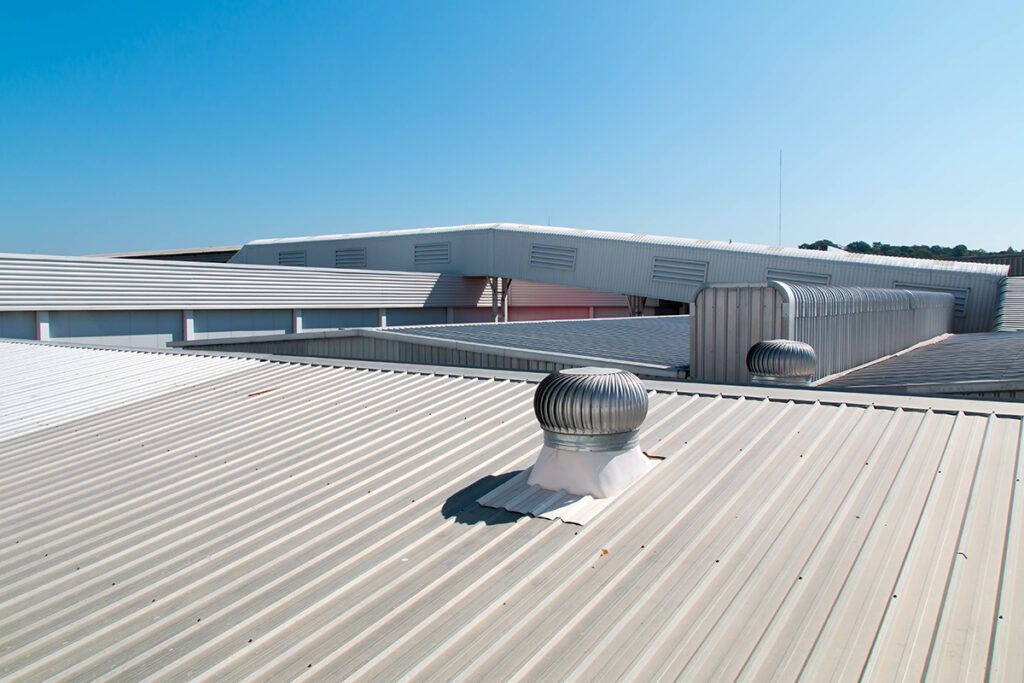
When it comes to commercial roofing, durability is crucial. Investing in a roofing system that can withstand the test of time and the elements is essential. Sustainable commercial roofing offers enhanced durability, ensuring your roof remains in optimal condition for years to come.
At Heidler Roofing, our roofing contractors specialize in installing sustainable roofing systems built to last. Whether it’s metal roofs known for their exceptional strength and resistance to extreme weather conditions or green roofs designed to withstand moisture and promote plant growth, you can trust that your sustainable roof will provide long-lasting protection for your building.
You can save money on frequent repairs and replacements by opting for sustainable commercial roofing. The durability of these roofing systems means less maintenance and fewer associated costs, allowing you to focus on other aspects of your business with peace of mind.
Looking for More Sustainable Commercial Roofing?
Sustainable commercial roofing offers many benefits for facility managers, business owners, contractors, and architects looking to make their buildings more environmentally friendly and cost-effective. Investing in eco-friendly roofing materials, energy-efficient designs, and durable solutions can reduce energy consumption, lower maintenance costs, minimize the environmental impact of your building, improve insulation, save money, and enhance durability.
If you’re ready to experience the benefits of sustainable commercial roofing, we encourage you to take the next step. Contact Heidler Roofing today to schedule a roofing estimate. Our team will assess your needs, provide tailored recommendations, and guide you through the process of implementing sustainable roofing solutions that align with your goals and budget.
Don’t wait any longer to make a positive change for your facility and the environment. Schedule your roofing estimate today and join the roofing revolution toward a greener future.
Resources:


